WATCH: Boozy British holidaymakers slammed by anti-tourism advocate
GB NEWS
Locals have blamed Spanish politicians 'playing political games' for instigating the protests
Don't Miss
Most Read
Trending on GB News
Canary Islands locals have begun to turn on anti-tourist protesters after months of demonstrations against innocent holidaymakers.
British tourists in the islands have long found themselves targeted by protests against mass tourism, with locals telling them to "go home".
The demonstrations, organised by as many as 20 different groups under the slogan "Canary Islands have a limit", have brought anti-tourist sentiment to the boil - and have made headlines stretching from the summer to the off-season.
Protesters have stormed popular beaches, brandished placards with messages such as "the Canaries don't live off tourism, tourism lives off the Canaries", and even sported images of guns.
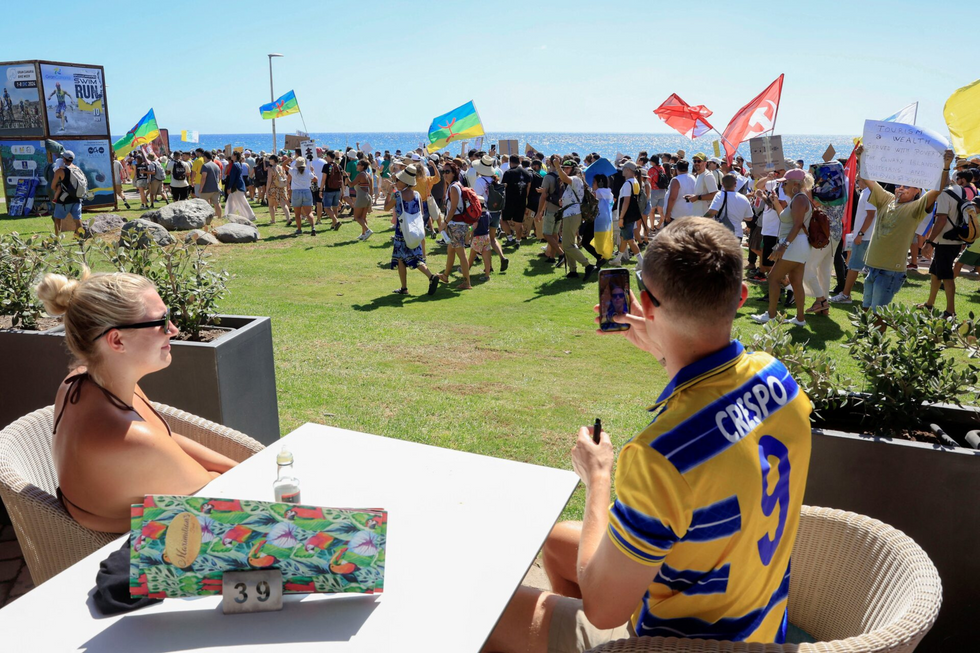
Bemused holidaymakers watched on as Communist flag-bearing demonstrators took to the streets
REUTERS
But now, some locals have hit out at the movement, with business owners arranging counter-protests to highlight the importance of tourism to the islands' economy.
Augusto Ferreira, a restaurant owner in the Canaries, organised one counter-protest called "Lanzarote Loves Tourism".
He condemned the anti-tourism sentiment, saying it was instigated by local politicians "playing political games".
Ferreira emphasised just how crucial tourism is to the islands' economies, saying: "I have heard very nice stories from people who say their family live off tourism, and that thanks to tourism they are what they are."
And David Morales, the People's Party's tourism chief in the Canary Islands, vowed to defend "the right of tourists to enjoy their holidays without being the target of interruptions or gestural or verbal attacks, and certainly not physical attacks".
SPAIN TURNS ON TOURISTS - READ MORE:
- 'Robin Hood rebellion!' Anti-tourist protesters inspired by English folklore hero in sabotage plot against holidaymakers
- 'Don't go!' Britons vow to boycott Spain following anti-tourist protests - 'they'll soon be crying'
- 'Tourists go home!' Terrified beach-goers mobbed by hundreds of protesters in Tenerife
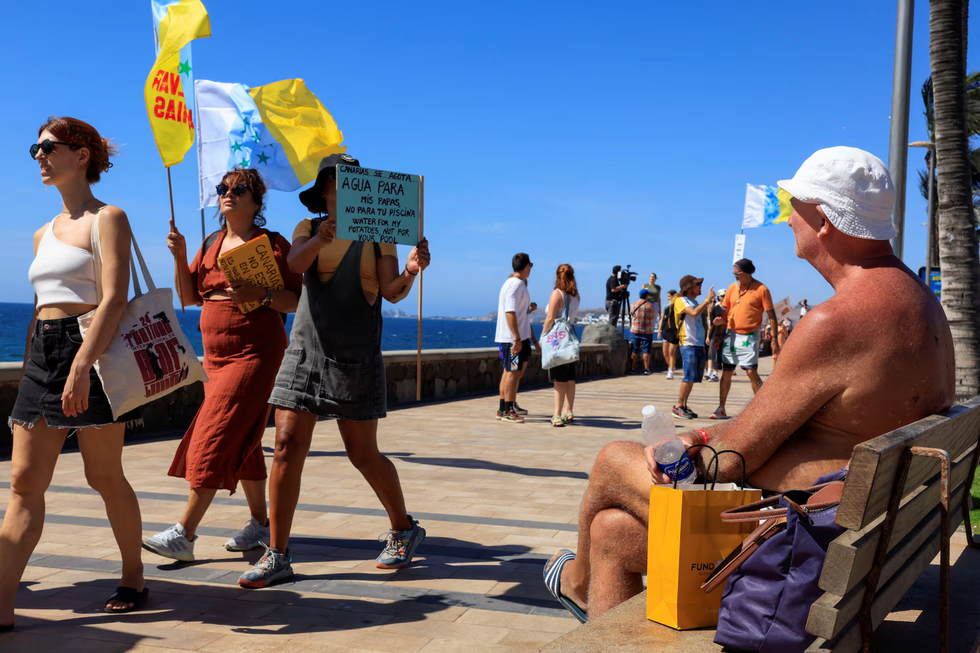
Anti-tourist activists threw slogans in holidaymakers' faces in the Canaries
REUTERS
The Spanish National Statistics Institute has reported a 10.3 per cent year-on-year increase in visits to the Canary Islands, totalling 9.9 million tourists from January to September in 2024.
Those millions, in turn, brought a record-breaking 20 billion euros to the islands last year.
And while those numbers dwarf those protesting, Spanish authorities still recorded 8,000 participants in last weekend's demonstrations.
One protester's sign read: "Enjoying a day at your pool? That water could be going on food."
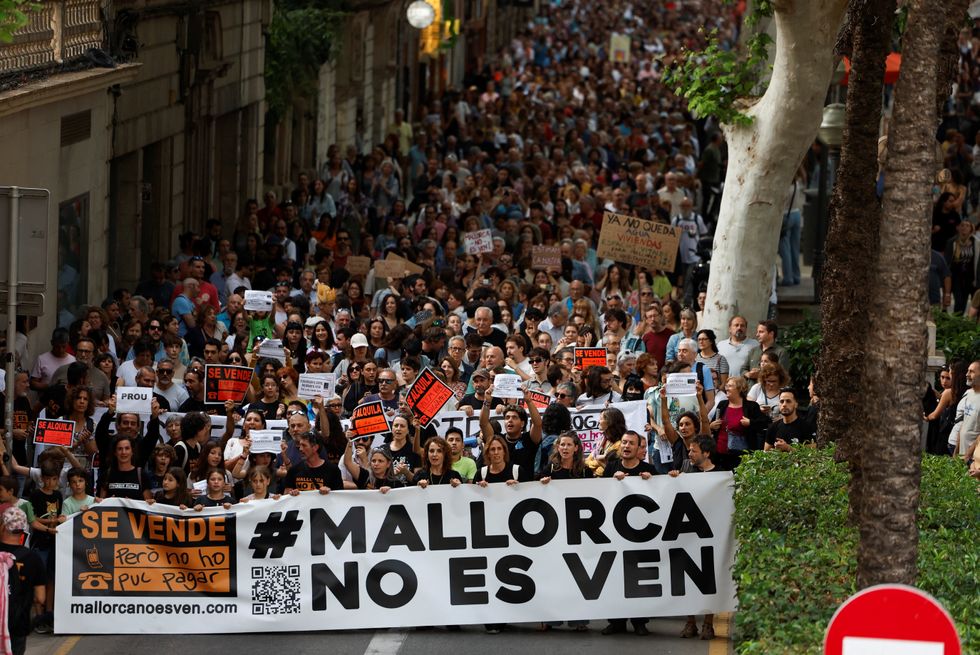
Holidaymakers across Spain have been called out by anti-tourist activists
ReutersWhile one unnamed British resident - married to a Canarian - laid into the protesters, telling The Telegraph: "They're cutting off their noses to spite their faces.
"The majority of my Canarian family all work one way or another in relation to tourism. They think the protesters are stupid - and totally don't agree with it."
But anti-tourism protesters have continued to lash out at rising housing costs and environmental issues.
Sarah Lopez, a 32-year-old from Gran Canaria, said: "We need a change in the tourist model so it leaves richness here, a change so it values what this land has because it is beautiful."
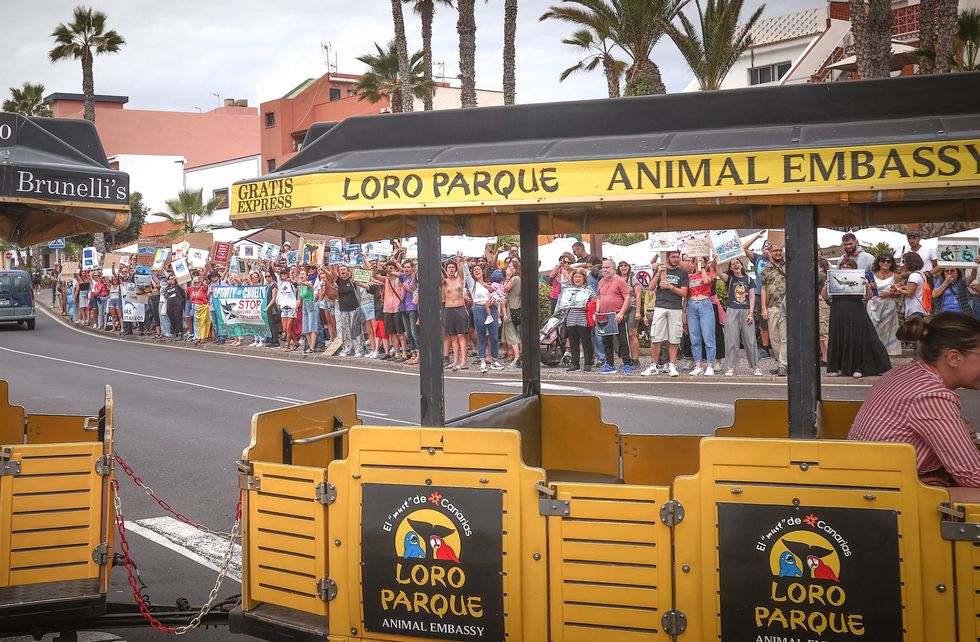
Dozens of people hold placards and protest in front of a tourist train in the Canary Islands
GETTYOthers declared: "Macrotourism destroys Canary Islands" and "The Canaries have a limit. More trees, fewer hotels."
And the Canary Islands' regional government has proposed a law to introduce stricter controls on short-term rentals in their anti-tourist crackdown.
The legislation, expected to pass, will prohibit new build properties from offering short-term lets.
Property owners will have a five-year window to comply with the new regulations. This move aims to address concerns about housing availability for locals.
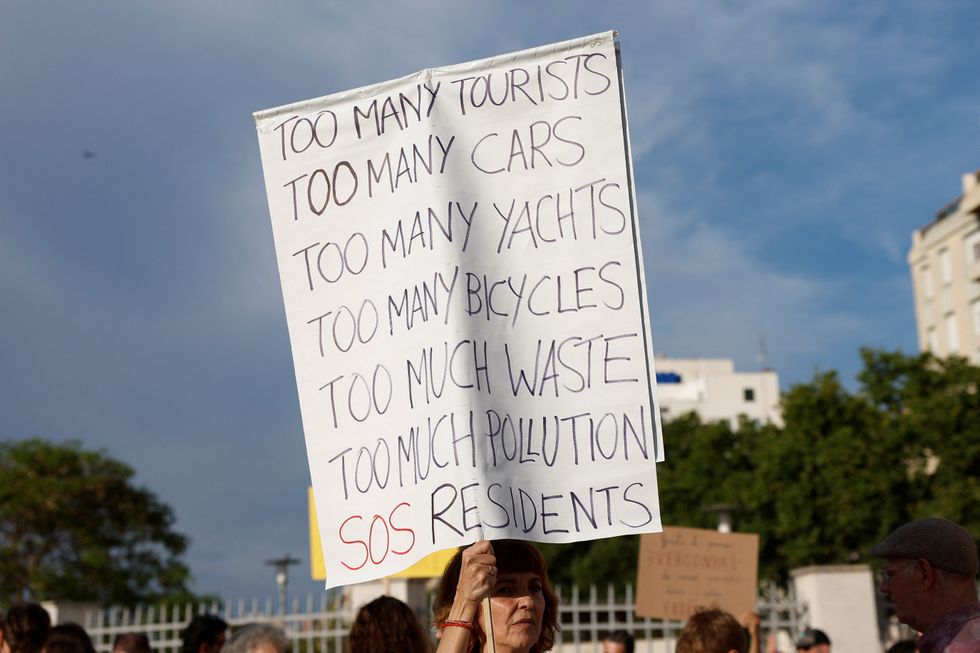
Anti-tourist protesters in fellow holiday hotspot Majorca have been warned that they "should be careful what they wish for"
ReutersBut some argue that reducing tourism could have severe economic consequences.
Martin Astley, a long-term resident and Tenerife estate agent, asked: "What would the protesters think if tourists and tour operators boycotted the Canary Islands for a whole year or two?"








